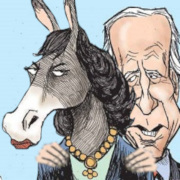|
There was no NSA to give an insight into who was really guilty of conspiring, in a lot of cases all you had was testimony and people will be people. It was rational in that they had no other choice in practice. It was not perfectly useful in that a lot of innocent got hosed but it was still better than the alternative. MeLKoR fucked around with this message at 21:43 on Jan 3, 2014 |
|
|
|

|
| # ? May 26, 2024 21:21 |
|
MeLKoR posted:There was no NSA to give an insight into who was really guilty of conspiring, in a lot of cases all you had was testimony and people will be people. Innocent people getting hosed is perfectly useful.
|
|
|
|
Saying political executions are rational is different than saying the execution of 50,000 essentially untried people, 72 percent of them workers and peasants, was rational. I don't think it takes the NSA to implicate the latter as excessive and possibly counter-productive.
|
|
|
|
Jedit posted:Yes, but not my romantic silliness. When you say things like "I will be killed for what I'm doing, but I'm doing it anyway because it is necessary" then you want people to think you are making a noble sacrifice. When they came for Robespierre and he responded with panic - which is certainly the case whether he botched the suicide attempt (likely) or was shot in a struggle - his convictions were proven hollow. This just makes no sense. What are you talking about? How does that make them hollow in any way?
|
|
|
|
France at the time was a nation of 28 million people. One million of these were members of the first and second estates - the tyrants at the apex of the system who took rents and tithes from the toilers at the edge of a sword. If the revolutionaries killed 50,000 of these institutional criminals, they spared 95% of them from completely justifiable retribution. The revolutionaries showed remarkable restraint and leniency to the murderers they deposed from power.
|
|
|
|
Ultimately, I see the part of a legacy of violence in France and while it theoretically was unavoidable, in actuality it probably wasn't. In the case of France, as Mark Twain stated, violence was already a regular part of life be it physical or economic and no revolution was going to cut it short especially during a period of exterior warfare. The only "solution" would have probably been a white counter-revolution which almost certainly would be as or more violent. I don't think the terror was permissible, but like anything needs to be put in context. I don't see a situation where they could just "knock it off."
|
|
|
|
Red Pyramid posted:Saying political executions are rational is different than saying the execution of 50,000 essentially untried people, 72 percent of them workers and peasants, was rational. I don't think it takes the NSA to implicate the latter as excessive and possibly counter-productive. You know, it's not like they were working on a quota. Trials were held locally, Robespierre wasn't personally presiding over courts all across the nation and executing insurrectionists. The fact that 72% were workers and peasants isn't surprising when you think about who made up the majority of insurrectionist armies, it weren't priests.
|
|
|
|
Yeah, there were plenty of royalist peasants who still believed in the Church and the Old Regime. Likewise, there were plenty of peasants and even workers who were monarchists and whites during the Russian Civil War.
|
|
|
|
Enjoy posted:France at the time was a nation of 28 million people. One million of these were members of the first and second estates - the tyrants at the apex of the system who took rents and tithes from the toilers at the edge of a sword. If the revolutionaries killed 50,000 of these institutional criminals, they spared 95% of them from completely justifiable retribution. The revolutionaries showed remarkable restraint and leniency to the murderers they deposed from power. The overwhelming majority of the first estate were economically basically the same as the third, which is why the poorer churchmen were among the first to split with their wealthier colleagues and side with the representatives of the commons during the Estates General, in particular on increasing third estate representation to reflect demographics and on voting matters. Similarly, among the second estate you had no end of minor nobles, particularly "of the robe," who weren't particularly different economically from the more prosperous members of the third estate; the huge landowning aristocrats of ancient title were the minority among that minority. You're not wrong that among the first and second estates were the true tyrants of Old Regime France, but to blanket-dismiss all non-commons as moneyed tyrants is a staggering oversimplification of the actual makeup of that regime, and ignores the complicated history of the Revolution. Also, those who died during the reign of terror, and earlier spasms of violence like the September massacres and especially the suppression of the Vendee, were often of the third estate themselves, particularly once Robespierre lost what little restraint he possessed. Ardennes posted:Yeah, there were plenty of royalist peasants who still believed in the Church and the Old Regime. Likewise, there were plenty of peasants and even workers who were monarchists and whites during the Russian Civil War. True, but there were also a lot of people who weren't particular fans of the Old Regime who ended up before revolutionary tribunals anyway, either as the result of someone using Revolutionary mechanisms to settle personal grudges, or for reasons as simple as, at the end of a hard day, saying how this ten-day week nonsense was bullshit a little too loud for your own good. What I'm driving at here is that while the First Republic was indeed threatened on all sides, and from within, from basically the first moment, and had every right to defend itself against revanchist overthrow, the way that it did so lent itself easily to abuse particularly once the reigns of power passed into the hands of zealots who say terror not as a temporary tool to be used in an emergency and then put up, but as an existential necessity which, in a proper Republic of Virtue, would remain an every-day affair. That said, I don't know that it could have gone down any differently, or even any better than it did, given the particulars on the ground. Given the benefit of hindsight, however, we ought at least be willing to learn from where things did go sub-optimally rather than simply cry "vie la guillotine!" We should really have a thread specifically for French Revolution-chat, I think.
|
|
|
|
Captain_Maclaine posted:as simple as, at the end of a hard day, saying how this ten-day week nonsense was bullshit a little too loud for your own good. Hating on decimal time is a crime worthy of the guillotine
|
|
|
Red Pyramid posted:Okay, I understand all this. I understand that the French republic was under foreign assault, that total war was necessary to defend it, and I agree that the royal family and leading aristocrats needed and deserved the guillotine. I understand that a level of domestic political oppression was necessary. The Jacobins were on the right side of history and the Ancien regime got what it deserved. I will concede all that. Well, you have to understand what total war entails. In order to do what they did, you need to centralize state power and discipline the population for war. Total war equates soldiers and citizens, as citizens become obliged to contribute to the war effort (such as through conscription) and in a sense, become subject to military discipline for the duration of the war. I think any decent person would admit that it is a horrible and brutal way to organize society, which is why it is justified only in the presence of a truly dire cause (in principle, anyway). For example, while the conduct of the Allied side in WWII was not acceptable by the highest progressive standards (basically everyone executed deserters etc.), very few today would question the justice of their fight against the fascist aggressors. So, if total war is necessary, you need to have a group to usher its arrival. Who could it have been in 1793? It couldn't have been the Girondins (moderate capitalist faction, dominant at the beginning), as they did not want to agitate and arm the population from fear of the political and social consequences. It couldn't have been the sans-culottes (urban laborers, thus radical of course) who despised revolutionary enemies but lacked organization. The best candidates were in fact the Jacobins (most radical of the middle class) who were less leery about arming laborers, sufficiently idealistic in their pursuit of the revolution, and zealous opponents of the old order and enemies of the revolution (and thus willing to send them to the guillotine). So the Jacobins enter the scene, with the prim and merciless zealot Robespierre at the head. The key thing to notice is that they were the most likely ones to assume power (due to their willingness to engage in total war for the revolution) in part because of their zealotry, their uncompromising attitude, and their willingness to guillotine their enemies. Not for their sense of mercy, pacifism or "pragmatism" but because they were the only ones with enough power willing to do what had to be done to win the war. In my opinion, if you are willing to accept the fact that France had to engage in total war, you should also be willing to recognize the fact that what Robespierre did, was at least partially just, even if you at the same time also believe that his conduct would be unacceptable outside of a terrible crisis like the one gripping France at the time. Also, I think your view of France is still a bit anachronistic. While no sans-culotte would support killing of loyal supporters of the revolution, I think it is safe to say they had little love not just for aristocrats but for deserters and traitors of lower classes as well. French sentiment was really rather angered at the time, and not all that forgiving or merciful to their (admittedly vile and vicious) enemies. For some anecdotal proof, go and check out the sans-culotte version of the revolutionary anthem, especially note the part about lampposts. Or for that matter, the full version of the Marseillaise, which certainly gave little sympathy to the foreign invaders of "impure blood".
|
|
|
|
|
Enjoy posted:France at the time was a nation of 28 million people. One million of these were members of the first and second estates - the tyrants at the apex of the system who took rents and tithes from the toilers at the edge of a sword. If the revolutionaries killed 50,000 of these institutional criminals, they spared 95% of them from completely justifiable retribution. The revolutionaries showed remarkable restraint and leniency to the murderers they deposed from power.
|
|
|
|
Dusz posted:Also, I think your view of France is still a bit anachronistic. While no sans-culotte would support killing of loyal supporters of the revolution, I think it is safe to say they had little love not just for aristocrats but for deserters and traitors of lower classes as well. French sentiment was really rather angered at the time, and not all that forgiving or merciful to their (admittedly vile and vicious) enemies. For some anecdotal proof, go and check out the sans-culotte version of the revolutionary anthem, especially note the part about lampposts. Or for that matter, the full version of the Marseillaise, which certainly gave little sympathy to the foreign invaders of "impure blood". It should also be pointed out that, especially as the Terror approached its crescendo, "loyal supporter of the revolution" became a harder and harder thing to prove if you stood accused of betraying that revolution. While they certainly had other motivations as well, the increasing arbitrariness of denouncements (and fear that their names were on the next list) was a large part of why the Thermidorians overthrew Robespierre. You're certainly correct though in pointing out it was a time of very high, and at times rather ugly, passions as well. In any number of ways, France still hasn't gotten over the divisions fostered in 1789. Also really minor nitpick: during WWII the US only executed one dude ever, a guy named Eddie Slovik.
|
|
|
Captain_Maclaine posted:The overwhelming majority of the first estate were economically basically the same as the third, which is why the poorer churchmen were among the first to split with their wealthier colleagues and side with the representatives of the commons during the Estates General, in particular on increasing third estate representation to reflect demographics and on voting matters. Similarly, among the second estate you had no end of minor nobles, particularly "of the robe," who weren't particularly different economically from the more prosperous members of the third estate; the huge landowning aristocrats of ancient title were the minority among that minority. I think you leave out something important about the First estate. It is true that the French nobles were not necessarily wealthy. However, it is wrong to try to bring them down to the level of the Third estate. You see, even poor noblemen never lost their noble title, and the prestige and privilege that came with it. And the prestige it had was far form non-existent, it could be used as leverage for royal appointments and work (military, clergy as well as the royal administration), and freed you from some burdens and taxes. In fact, part of why the aristocrats were so unpopular at the time was because in the 18th century, they had often used their nobility as leverage, which harmed the middle class in the process. The other thing is that, like I said, the choice was not between successful national defense with the Jacobins and national defense without them. It was instead the choice between the Jacobins and dissolution of the republic. In no small part because of their less savory characteristics, they were the only ones that were able to reconstitute the society to wage total war. In fact, it were those characteristics which got them into power in the first place, as the more radical and uncompromising alternative to the wavering Girondins.
|
|
|
|
|
Dusz posted:I think you leave out something important about the First estate. It is true that the French nobles were not necessarily wealthy. However, it is wrong to try to bring them down to the level of the Third estate. You see, even poor noblemen never lost their noble title, and the prestige and privilege that came with it. And the prestige it had was far form non-existent, it could be used as leverage for royal appointments and work (military, clergy as well as the royal administration), and freed you from some burdens and taxes. In fact, part of why the aristocrats were so unpopular at the time was because in the 18th century, they had often used their nobility as leverage, which harmed the middle class in the process. Well yeah, I left that out as I was responding to the claim that the members of the First and Second Estates were all tyrants and the existential enemies of the Third, which is just not true as evidenced by what actually went down at the Estates General. Also, the nit-picker that is innate in me as a DnD poster compels me to point out that the nobility were of the Second estate, not the First. quote:The other thing is that, like I said, the choice was not between successful national defense with the Jacobins and national defense without them. It was instead the choice between the Jacobins and dissolution of the republic. In no small part because of their less savory characteristics, they were the only ones that were able to reconstitute the society to wage total war. In fact, it were those characteristics which got them into power in the first place, as the more radical and uncompromising alternative to the wavering Girondins. While I'd certainly agree that the Jacobin's radical, and I'd go as far as to say violent, nature predisposed them to rise to the forefront under those conditions, I am less certain that in their absence the Republic would have been necessarily doomed. Sure, the Girondins and other moderates were much less zealous and doubtless some among them would have countenanced some sort of compromise with the forces of reaction, but I'm not convinced enough of them wouldn't have at least tried to marshal forces to defend the new state, and once armies started to march they'd have had no choice other than win or be the first to the gallows once the king is back on his throne. This is admittedly entirely counterfactual, since we know what actually did happen.
|
|
|
|
I have never even heard of any capitalist saying that the belgian occupation of the congo, for example, was necessary.
|
|
|
|
Captain_Maclaine posted:It should also be pointed out that, especially as the Terror approached its crescendo, "loyal supporter of the revolution" became a harder and harder thing to prove if you stood accused of betraying that revolution. While they certainly had other motivations as well, the increasing arbitrariness of denouncements (and fear that their names were on the next list) was a large part of why the Thermidorians overthrew Robespierre. http://en.wikipedia.org/wiki/H%C3%A9bertists
|
|
|
|
chaos rhames posted:I have never even heard of any capitalist saying that the belgian occupation of the congo, for example, was necessary. So you've never read the works of a certain (possible) leader of the civilizing forces, then. Newt Gingrich defended the Belgian occupation of the Congo in his PhD dissertation, in case you didn't get the joke.
|
|
|
|
chaos rhames posted:I have never even heard of any capitalist saying that the belgian occupation of the congo, for example, was necessary. I have heard plenty of people apologize for the British Empire (look at that GBS thread on India). How many atrocities in American history are glossed over? Also, I am pretty sure there are right-wing Belgians out there that almost certainly would apologize for it.
|
|
|
Captain_Maclaine posted:It should also be pointed out that, especially as the Terror approached its crescendo, "loyal supporter of the revolution" became a harder and harder thing to prove if you stood accused of betraying that revolution. While they certainly had other motivations as well, the increasing arbitrariness of denouncements (and fear that their names were on the next list) was a large part of why the Thermidorians overthrew Robespierre. It's fair to point out that Robespierre fell because of his zealotry, as by the end he had managed to alienate both the supporters of Danton and the sans-culottes by indiscriminate executions and threats (such as his attack against the Hébertists, as typo mentioned). And I would personally argue that not just France but Europe and most of the world are still significantly impacted by 1793. It really set the stage for the popular uprisings in the last two century - which often have featured the four-part cast of the radical lower class (sans-culotte), reactionaries (monarchists), moderate reformers also looking out for the interests of their in-group (Girondins) and the radical middle-class willing to go all the way (Jacobins). Also, I concede on the subject of the nitpick, I could probably bring out a better example but I don't feel it's right to dwell about it - after all, my idea was that we ought to respect the sacrifices of American soldiers made for the defeat of fascism. quote:While I'd certainly agree that the Jacobin's radical, and I'd go as far as to say violent, nature predisposed them to rise to the forefront under those conditions, I am less certain that in their absence the Republic would have been necessarily doomed. Sure, the Girondins and other moderates were much less zealous and doubtless some among them would have countenanced some sort of compromise with the forces of reaction, but I'm not convinced enough of them wouldn't have at least tried to marshal forces to defend the new state, and once armies started to march they'd have had no choice other than win or be the first to the gallows once the king is back on his throne. I think you're underestimating how radical the idea of total war was. I would say the big problem for the Girondins was their worry about the social consequences. Think of it like this. A restructuring for total war had never been done before on such a large scale, and would require massive popular support or massive coercive methods from the Girondins. However, the latter option was not possible (not even any king of France had ever had such power) and the former option was unacceptable, as popular support meant a more radical commitment to the revolution, to the point of massive social reform, which the Girondins hoped to prevent. Also, remember that the Girondins were in power at the start of the war, and France was losing badly. As a result, they lost credit to the Jacobins, which allowed them to come to power in the first place. Dusz fucked around with this message at 00:26 on Jan 4, 2014 |
|
|
|
|
Dusz posted:Are you aware that in 1917 the Soviet republic was under overwhelming foreign assault? The aggressors had a massive material advantage, didn't think the republic was legitimate, and cared nothing about Russian public opinion. The republic was not going to survive if it didn't engage in total war against the invaders, which required unprecedented action - including mass-scale conscription and suppression of internal enemies. The sole alternative was the destruction of the republic and the total victory of criminal, treasonous and incompetent Russian feudalists. What was your position on the Russian revolution again?
|
|
|
|
You're barking up the wrong tree, orange. Dusz joined our ranks a while ago.
|
|
|
|
SSJ2 Goku Wilders posted:You're barking up the wrong tree, orange. Dusz joined our ranks a while ago. Oh shows how much I've been keeping up.
|
|
|
|
chaos rhames posted:I have never even heard of any capitalist saying that the belgian occupation of the congo, for example, was necessary. As mentioned already, just because you've not personally heard of them doesn't mean that they exist. But the bigger problem with your argument is that you're comparing the actions of a nation literally fighting for its continued existence with the mother of all glorified robberies. Doesn't something about this strike you as a little bit off? Captain_Maclaine posted:While I'd certainly agree that the Jacobin's radical, and I'd go as far as to say violent, nature predisposed them to rise to the forefront under those conditions, I am less certain that in their absence the Republic would have been necessarily doomed. Sure, the Girondins and other moderates were much less zealous and doubtless some among them would have countenanced some sort of compromise with the forces of reaction, but I'm not convinced enough of them wouldn't have at least tried to marshal forces to defend the new state, and once armies started to march they'd have had no choice other than win or be the first to the gallows once the king is back on his throne. I think you underestimate just how radical the strategies of the Jacobins really were and how big of a shambles the french armed forces were in the immediate aftermath of the revolution. "Trying" to marshal forces isn't even close to what had to be done to save the republic, which was the immediate introduction of mass conscription and gearing up for total war.
|
|
|
|
Cerebral Bore posted:I think you underestimate just how radical the strategies of the Jacobins really were and how big of a shambles the french armed forces were in the immediate aftermath of the revolution. "Trying" to marshal forces isn't even close to what had to be done to save the republic, which was the immediate introduction of mass conscription and gearing up for total war. I am entirely aware of the fiasco that was the initial campaign against the monarchist armies, and what a seachange the levee en masse was. That the Jacobins were better suited to the task than the moderates does not preclude those moderates coming to a similar conclusion subsequently out of desperation later on had the Jacobins not been on the seen. But as I already admitted, this is counterfactual as balls, and not really worth further pursuing as it inevitably devolves into the worst kind of "what-if" alt-history garbage.
|
|
|
|
Militant nationalism and military slavery? Now that's what I call progress.
|
|
|
|
SSJ2 Goku Wilders posted:You're barking up the wrong tree, orange. Dusz joined our ranks a while ago. I've been sitting here reading this thread and going "...is that the same Dusz?"
|
|
|
|
Are people forgetting that one of the main actions of the Jacobins was hounding and executing the people (guess who) who stored and engrossed foodstuffs so that the desperate urban masses could actually feed themselves? The brutality of the Jacobins was to attempt to solve starvation, foreign invasion and inside collaboration\sabotage in a matter of months in a country with 28 million people. What is amazing about these discussions is how no one sheds tears over the deaths caused by starvation and pointless warfare prior to the Jacobins, nor the white terror and following starvation\misery caused by the end of the controlled economy of the Jacobins nor the brutality of Napoleon. What are fifty thousand dead compared to the brutality in the Iberian peninsula? What are fifty thousand compared to the frozen blood in Russia? The Jacobins' pressure was much more severe than any of the previous or following regimes, the fact that they managed to improve the food situation and push back the reactionary hordes with only fifty thousand dead to tarnish their name is a feat in itself. The fact that the word "jacobin" terrorized any and all monarchist and bourgeois-aristocrat up until the first world war is a sign that they were on the right side of history. Sakarja posted:Militant nationalism and military slavery? Now that's what I call progress. Unfortunately Gracchus Babeuf kept the long and proud tradition of anarchists possessing a pretty tongue but doing nothing other than getting themselves killed. Much like other anarchists, it was a loving shame because the boy had potential.
|
|
|
|
Mans posted:What is amazing about these discussions is how no one sheds tears over the deaths caused by starvation and pointless warfare prior to the Jacobins, nor the white terror and following starvation\misery caused by the end of the controlled economy of the Jacobins nor the brutality of Napoleon. In the modern Anglosphere, the French kings are already put in the category of "generic bad guys" like most other royalty of the era and Napoleon is regarded as a murderous midget who ruined Europe. People rarely go on about "oh Louis #459 was so great and Napoleon was awesome" so noone's going to bother vociferously denouncing them either. In your typical middle school/high school in the US, the French Revolution basically gets covered as "they got rid of the kings and that was good, then a while later that darn Robispierre starts guillotining everyone and gets overthrown". Then Napoleon gets mentioned as a brutal leader who kills as bunch of people all across Europe and totally got what he had coming to him in Russia and Waterloo. Perhaps this is different where you're from. Nintendo Kid fucked around with this message at 03:48 on Jan 4, 2014 |
|
|
|
Napoleon is treated like a tragic Alexander more than a brutal nepotistic fucker that he was. Not that Alexander wasn't a brutal nepotistic fucker 
|
|
|
|
In America at least, I think Napoleon is kind of treated as an interesting aside but largely not dwelt on. If I remember growing up, conventional history lessons spent more time on the War of 1812 (poorly) than all of the Napoleonic wars which is kind of silly. Oh but it was parochial school so naturally there is an aside where Napoleon crowns himself instead of the pope because he's a total fucker.
|
|
|
|
Berke Negri posted:In America at least, I think Napoleon is kind of treated as an interesting aside but largely not dwelt on. If I remember growing up, conventional history lessons spent more time on the War of 1812 (poorly) than all of the Napoleonic wars which is kind of silly. Napoleon is neutral for America because he sold us a bunch of land for cheap and he distracted Britain during 1812 but he was also kind of weird. I seem to remember there's a long standing debate about comparing him to Hitler that pops up every so often though.
|
|
|
|
I always thought that was a more euro-theatre argument, I can't recall hearing anyone wringing their hands too much over Napoleon in the States. This is average American instruction of history too is what I mean, I think at this era Great Britain is still the existential villain in American history so whatever France is doing doesn't matter. Napoleon was an rear end in a top hat but given this period of Europe it's hard for me to understand why I should think he's a bigger rear end in a top hat than all the other assholes running around at the time in case anyone wants to educate me in the
|
|
|
|
Yeah, I think the tone is more neutral than anything, he was an enemy of an enemy and sold us a bunch of land so there wasn't too much to complain about. Before we let Napoleon chat go too far, Napoleon was still a vast improvement over his rivals of the time even if he ruined Republicanism.
|
|
|
|
Typo posted:It should be noted that Robespierre also sent people to the left of himself to the Guillotines as well. The Hebertists weren't really to the left of Robespierre, unless you think of atheism as leftist. At that end of the spectrum terms like "more leftist" become meaningless anyway, they all wanted redistribution of property, their differences were mostly about the definition of virtue and truth and so on.
|
|
|
|
The history book we had in school basically said that since he wasn't a "democratic" leader he was implicitly bad and that he was stupid to sell us Louisiana but it was a good thing for us he did. Then it picks up later with a description of how the Russian invasion failed and how he got defeated at waterloo, with a framing of "he deserved losing this bad because He Was A Bad Man". And of course when we got to World War II, Hitler is directly compared to Napoleon for invading and similarly horribly losing to Russia.
|
|
|
|
Going to war with Russia only succeeds if you're coming from the East, though.
|
|
|
|
Berke Negri posted:Going to war with Russia only succeeds if you're coming from the East, though. It didn't work so well for Japan either (1939). Maybe it should be amended to "it only works if you're 13th century Mongolians."
|
|
|
|
Ardennes posted:It didn't work so well for Japan either (1939). Maybe it should be amended to "it only works if you're 13th century Mongolians." Could have worked for Hitler if he'd listened to his military and both spent more time building up plus continued driving through to Moscow and beyond, rather than his plan based on "well the Russians are all stupid inferior Slavs and they'll soon break so we can take our time". Just goes to show how fascist ideals aren't helpful even if you just want to conquer poo poo for the sake of war itself.
|
|
|
|

|
| # ? May 26, 2024 21:21 |
|
Install Windows posted:Could have worked for Hitler if he'd listened to his military and both spent more time building up plus continued driving through to Moscow and beyond, rather than his plan based on "well the Russians are all stupid inferior Slavs and they'll soon break so we can take our time". You should pop over to the mil history in ask/tell because Hitler was never going to win that war and going for Moscow like you say probably would have seen army group center destroyed in fall 41.
|
|
|























